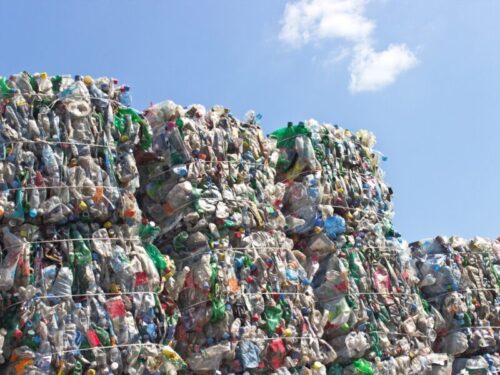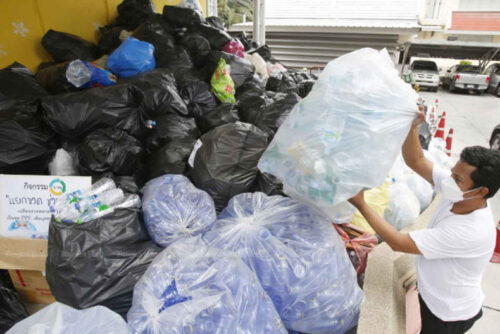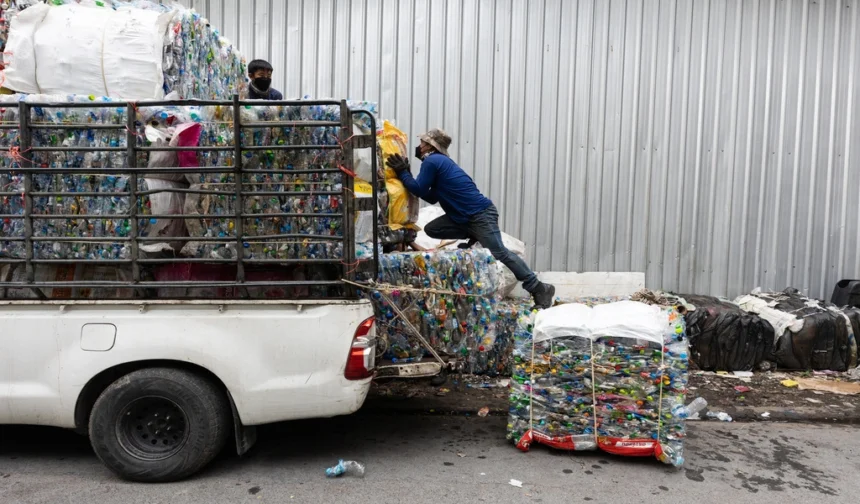A crucial move in the fight against global plastic pollution is Thailand’s 2025 ban on plastic scrap imports. Its success will be determined by civic society, government action, and future enforcement.
On January 1, 2025, legislation prohibiting the import of plastic scraps into Thailand marked a critical milestone in civic society’s efforts to prevent the country from becoming a landfill for global plastic garbage.
However, this is hardly a definitive win or a happy ending.
An ongoing monitoring strategy and effective law enforcement are required to prevent illegal plastic trash exports into the country.
Penchom Sae-Tang, director of Ecological Alert and Recovery-Thailand (Earth), who was instrumental in the campaign against plastic trash imports, thanked members of the Anti-Plastic Scrap Citizen Network for their dedication to translating advocacy into action.
The network began in 2021 with a petition to the Ministry of Natural Resources and Environment seeking the government to restrict plastic scrap imports.
The movement received considerable support, with endorsements from 108 civil society organizations and 32,000 individuals signing an online petition on Change.org.
Ms Penchom stated that Thailand became a global destination for plastic trash dumping when the government permitted the import of plastic waste in 2018 to ostensibly boost the plastic recycling business.
Thailand as a Destination for Global Plastic Trash
Between 2018 and 2021, the Department of Customs reported importing more than 1.1 million tonnes of plastic scrap.
This surge, she claimed, disturbed the local garbage management cycle and hurt small-scale waste collectors, who challenged the program, citing severe commercial losses.
Ms Penchom also claimed that inadequate law enforcement had allowed hazardous and unlawful waste to be admitted, contaminating areas surrounding plastic recycling operations and resulting in numerous public complaints.
“The ban on all plastic scrap imports should be seen as a triumph for civil society in preventing hazardous waste from entering Thailand,” she informed the Reporters.

“However, our task is far from complete.
“Vigilant monitoring and robust cooperation with authorities will be critical to ensuring the law is enforced for the benefit of all.”
Ms Penchom stated that the network would watch the situation.
She also emphasized that the Ministry of Industry should exercise prudence when allowing plastic scrap imports in exceptional circumstances. To minimize unnecessary waste, volumes should be precisely aligned with the production capability of recycling factories.
“This is only the start of a new chapter.
“Law enforcement must play a pivotal role in safeguarding the environment for everyone,” she told reporters.
Ms. Penchom stated that pollution from plastic waste recycling operations had significantly impacted the livelihoods and well-being of local populations, particularly those located near farms or waterways such as rivers and canals.
The Future of Plastic Scrap Imports in Thailand
In December last year, the Ministry of Commerce announced a ban on plastic scrap imports, effective January 1, 2025.
However, the notification includes a provision that allows the Department of Industrial Works to permit imports if domestic plastic scrap sources are insufficient.

In 2023, the government approved importing 372,994 tonnes of plastic scraps, subject to 14 designated industrial zones.
Public pressure and the government’s plans for a full ban will cut this volume by half by 2024.
Phicha Rakrod, leader of Greenpeace Thailand’s initiative to prevent plastic pollution, encouraged the government to broaden the ban on plastic trash to safeguard the country’s freedom from transboundary garbage shipments.
She also urged the government to take the chance to establish Thailand as a regional leader in combatting and managing transboundary garbage.

Salman Ahmad is known for his significant contributions to esteemed publications like the Times of India and the Express Tribune. Salman has carved a niche as a freelance journalist, combining thorough research with engaging reporting.














